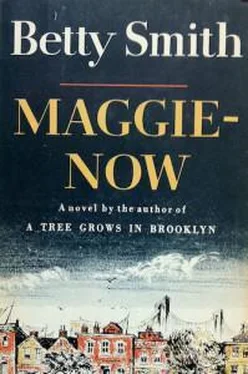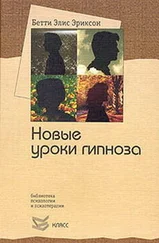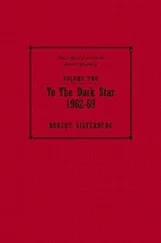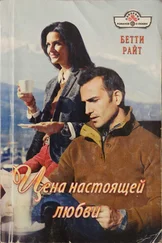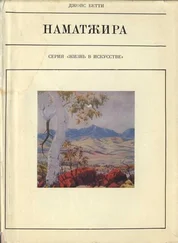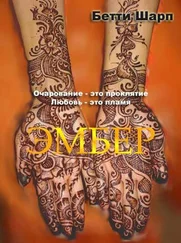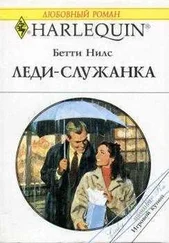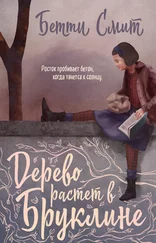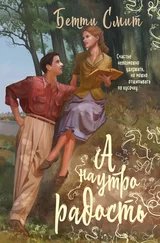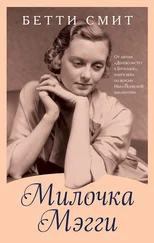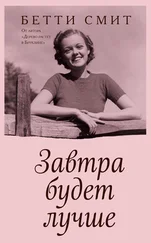Бетти Смит - Maggie-Now
Здесь есть возможность читать онлайн «Бетти Смит - Maggie-Now» весь текст электронной книги совершенно бесплатно (целиком полную версию без сокращений). В некоторых случаях можно слушать аудио, скачать через торрент в формате fb2 и присутствует краткое содержание. Жанр: Проза, на английском языке. Описание произведения, (предисловие) а так же отзывы посетителей доступны на портале библиотеки ЛибКат.
- Название:Maggie-Now
- Автор:
- Жанр:
- Год:неизвестен
- ISBN:нет данных
- Рейтинг книги:3 / 5. Голосов: 1
-
Избранное:Добавить в избранное
- Отзывы:
-
Ваша оценка:
- 60
- 1
- 2
- 3
- 4
- 5
Maggie-Now: краткое содержание, описание и аннотация
Предлагаем к чтению аннотацию, описание, краткое содержание или предисловие (зависит от того, что написал сам автор книги «Maggie-Now»). Если вы не нашли необходимую информацию о книге — напишите в комментариях, мы постараемся отыскать её.
Maggie-Now — читать онлайн бесплатно полную книгу (весь текст) целиком
Ниже представлен текст книги, разбитый по страницам. Система сохранения места последней прочитанной страницы, позволяет с удобством читать онлайн бесплатно книгу «Maggie-Now», без необходимости каждый раз заново искать на чём Вы остановились. Поставьте закладку, и сможете в любой момент перейти на страницу, на которой закончили чтение.
Интервал:
Закладка:
"I'll make a wish, too," said Mary. "I wish that all your wishes come true." Maggie-Now hugged her mother's arm.
Obscurely, Patsy felt left out. If he couldn't be in on their emotional closeness, the next best thing was to destroy it.
"People what lives by the water," he said, "always get rheumatism and their teeth fall out because they got to eat fish all the time."
"Oh, you gloomy Gus,' said Maggie-Now.
"We do not use slang," said Mary.
"And we do not," said Patsy with bitter mimicry, "talk to our father that way, in the bargain."
Mary knew how he felt. She reached across and took the shoebox from his knees. It had l\Iaggie-Now's wet bathing clothes in it.
"I'll hold it," said Mary. "It's leaking through on your good pants."
Not long after this, Mary told Pat that she was going to start Maggie-Now in parochial school in the fall.
"She ain't going to no C atholic school and that's settled," said Patsy.
"I've already enrolled hi r," said Marv.
"Unroll her, then."
"Now, Patrick. ."
"That's me last word on the subject. She goes to public school.' He had nothing against the parochial school. He just liked to argue. He sat down to read the evening paper. Suddenly he jumped up with a great oath.
"I won't stand for it! By God! l won't stand for it!"
Mary thought he was referring to the school. "It's settled," she said firmly.
"What about Brooklyn?' he shouted.
"The school's in Brooklyn," she said, bewildered. "You know that."
1 \9~1 "What the hell's the school got to do with it? Brooklyn ain't no longer a city. It says so in the paper. Now it's only a borough of New York City."
"Think how the people in New York feel. That used to be New York City. Now it's only the Borough of Manhattan. Anyhow, Patrick, you can't do a thing about it."
"Oh, no? I can take the kid out of parochial school."
"What good would that do?"
"It would let me have me own way for once." He got up, grabbed his hat and threw himself out of the house.
The saloon was so crowded Patsy could hardly get in. It was full of Irishmen bitterly cursing the annexation of Brooklyn by New York. They blamed it all on the British.
"And is it not the fault of England," shouted a burly man in a square-topped derby, "and she bragging how London is the biggest city in the world and that making New York jealous? And what does New York turn around and do? She steals Brooklyn and hitches it- on to make New York the biggest city in the world."
"But there'll always he a Brooklyn!" rang out a voice in the crowd. This sentiment was loudly applauded and wildly cheered.
"Let's all drink to that!" yelled another man. They crowded up to the bar.
"What's yours?" the bartender asked Patsy.
"I ain't drinking to that darrm foolishness," said Patsy.
"On the house," said the bartender.
"I'll have a double rye. With water on the side," added Patsy. The bartender gave him a beer.
All held their glasses aloft. "To Brooklyn!" said the bartender.
Before they could drink, another voice rang out.
"Brooklyn go bragh!"
"Brooklyn go bragh! ' shouted all the men in the saloon.
And a couple of men passing on the street stopped to holler: "Brooklyn go bragh!"
Maggie-Now attended parochial school. T o Mary's distress, her daughter was not the brightest one in the class. To Patsy's relief, she was not the dumbest one. She vvas down near the bottom of the average kids But the teaching nuns liked her.
~ 9 1 She got to school early and stayed late. She washed the blackboards and clapped the chalk dust out of the erasers and filled the inkwells. On Mondays, when the children had to bring pieces of broken glass to school to scrape ink spots off the floor, MaggieNow showed up with a bagful of glass to supply the kids who had forgotten to bring their own. She spent her Saturdays collecting bottles and smashing them for that purpose.
Sometimes; her mother let her take her lunch to school.
Usually it was two bologna sandwiches. She always traded them for the three slices of dry bread a wispy girl brought for lunch, insisting that she hated meat and liked plain bread better. It wasn't that she was sorry for the girl or overly generous; she just liked to give things.
"She is a giver," sighed Sister Veronica to Sister Mary Joseph.
"She'll have a busy life, then," said Sister Mary Joseph dryly. "There are ten takers for fine giver."
Regularly, each morning at ten and each afternoon at two, Maggie-Now's hand shot up in the air for permission to leave the room. This regularity irritated Sister Veronica.
Once she frowned and said: "We had recess h If an hour ago. Why didn't you attend to your needs then?"
"I did," said Maggie-Now frankly. "Now I got to 'tend to my horse." The class tittered.
"Watch your language, Margaret," said Sister Veronica sharply.
Out in the yard, Maggie-Now with many a "Whoa there," and a "Hold still, boy," untied an imaginary horse from an imaginary stake. Then she became the horse. She ran about the yard, galloping and prancing and snorting.
Then she was a steeplechase horse taking imaginary hurdles. And lastly, not to neglect the humbler species, she was a junk-wagon horse in harness, straining to pull a load that must have weighed a hundred pounds. She was not above falling down in pretended exhaustion and death to give reality to her game.
She bounced back into the classroom, windblown, rosy and glowing. Although Sister Veronica frowned when she left, she always smiled when she re urned.
She told Sister Mary Jos'ph: "She brings the smell of the wind back into the room with her." She pronounced
— ui7~d to rhyme with kind.
19/1 "A pity you gave up writing poetry, Sister, when you took holy orders," said Sister Mary Joseph.
The rules of the order forbade any nun to walk abroad alone. She had to go with another nun or a lay person.
The nuns liked children to go shopping with them.
Maggie-Now vitas much in demand as an escort. When she turned up at the convent on a Saturday morning, the sisters pretended to quarrel over w ho'd get Maggie-Now.
This thrilled the girl.
Sister Veronica needed new shoes. Maggie-No\v went to the shoe store with her. She knelt down and helped the nun try on the shoes. She kneaded the leather over the toes and asked anxiously: "Are you sure they fit? Have you got room for all your toes? "
"You'll wear them out, child, before I have a chance to ovally in them."
Sister Mary Joseph wore a wedding ring, as did the other nuns, because she was the bride of Christ. Through the years, the ring had become too tight. Maggie-Now escorted her to the jeweler's to have it sawed off.
Maggie-Now liked Sister Mary Joseph but was afraid of her because she said unexpec ted things. When Maggie-Now escorted Sister Veronica, she held the nun's hand and skipped along and chattered. With Sister Mary Joseph, she walked sedately no hand holding, no skippin, no chatter. Maggie-Now had to stretch her legs to match the mln's long stride. They had been walking three blocks in complete silence when Sister said in an ordinary, conversational tone: "What's your horse's name?"
The girl quivered and wondered how Sister knew. She gave her a quick look. The nun was staring straight ahead.
"What horse?" hedged Maggie-Now.
"The one you keep in the schoolyard."
Читать дальшеИнтервал:
Закладка:
Похожие книги на «Maggie-Now»
Представляем Вашему вниманию похожие книги на «Maggie-Now» списком для выбора. Мы отобрали схожую по названию и смыслу литературу в надежде предоставить читателям больше вариантов отыскать новые, интересные, ещё непрочитанные произведения.
Обсуждение, отзывы о книге «Maggie-Now» и просто собственные мнения читателей. Оставьте ваши комментарии, напишите, что Вы думаете о произведении, его смысле или главных героях. Укажите что конкретно понравилось, а что нет, и почему Вы так считаете.
